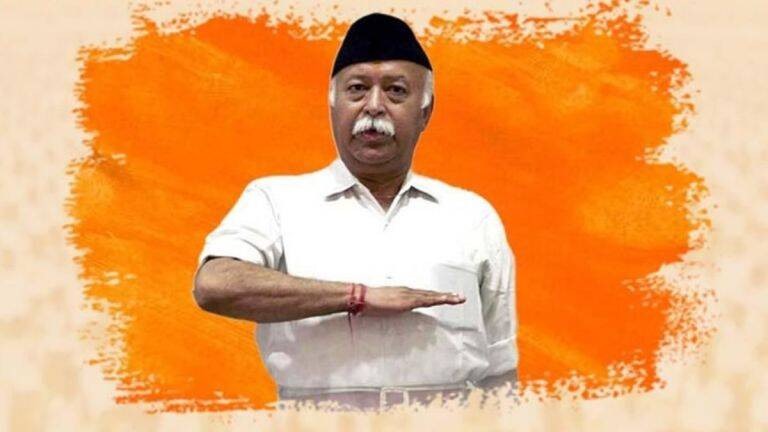- In recent weeks, a surprising admission by the Rashtriya Swayamsevak Sangh (RSS) chief, Mohan Bhagwat, has stirred significant debate and discussion across India. In a speech delivered in Nagpur, Bhagwat openly acknowledged the historical injustices perpetuated within the context of Sanatan Dharma (Hinduism) and even suggested a radical path towards reconciliation.
Bhagwat’s candid statement that “we didn’t care they lived like animals for 2,000 years” is a confession of monumental historical proportions, particularly coming from the head of an organization deeply rooted in Sanatan Dharma’s traditional beliefs. He further expressed a willingness to atone for these historical injustices, even if it takes 200 more years. Additionally, Bhagwat made headlines by suggesting that Swayamsevaks (RSS volunteers) should be open to consuming cow meat if it helps integrate the downtrodden castes into the larger Hindu fold. This statement has far-reaching implications and challenges deeply ingrained practices and beliefs.
While Bhagwat’s remarks have sparked controversy and introspection within the ideological circles of Hinduism, what’s even more astonishing is the relative silence surrounding this pivotal confession in mainstream media and political discourse. His acknowledgment of social inequities within Sanatan Dharma is as bold as any critique made by opposition parties, such as the DMK. It is a path-breaking admission that deserves careful consideration.
One of the most baffling aspects of this situation is the apparent inability of the political opposition to seize upon Bhagwat’s statement and use it to bolster their own arguments. For instance, the demand for a nationwide caste census, a contentious issue, could find substantial ideological support in Bhagwat’s admission. By identifying who the “we” in his statement refers to, it becomes evident that the upper-caste twice-born communities must address the historical injustices committed within Sanatan Dharma.
Kancha Ilaiah’s book, “Why I Am Not a Hindu,” provides a detailed exploration of caste oppression and how “Brahminical Hinduism” marginalized Shudra castes and outcasts, both socially and culturally, for centuries. Bhagwat’s statements align with these critical observations, highlighting the need for deep introspection and reform within Hinduism.
The ongoing debate over the eternal verity of Sanatan Dharma’s theologies is another critical aspect. The historical evolution and transformation of deities over time challenge claims of unchanging religious doctrine. Bhagwat’s admission inadvertently opens the door to a broader discussion about the dynamic nature of religious thought systems.
In essence, Bhagwat’s confession should be viewed as an opportunity for the political opposition to articulate a robust critique of majoritarianism, which can be seen as the political expression of “Brahminical Hinduism.” Rather than being confounded by the RSS’s polemics, opposition parties should harness the support embedded in Bhagwat’s words to address social inequalities and discrimination effectively.
Bhagwat’s admission may also signify a growing insecurity within the ruling Bharatiya Janata Party (BJP) and the Modi-led government. It suggests that they recognize the potential consequences if lower-caste communities withdraw their support. This acknowledgment underscores the validity of the position taken by parties like the DMK, which have consistently raised concerns about caste discrimination.
Mohan Bhagwat’s recent statements have ignited a crucial debate about caste discrimination within Sanatan Dharma. The admission from the RSS chief, a significant figure in Hinduism’s ideological landscape, should not be overlooked. It is a call to address historical injustices and promote social equity within the religion. Furthermore, it offers an opportunity for the political opposition to strengthen their critique of majoritarianism, drawing attention to the need for reform within Hinduism and emphasizing the importance of a nationwide caste census. The impact of Bhagwat’s words may extend far beyond the initial controversy, reshaping the discourse on caste and religion in India.

